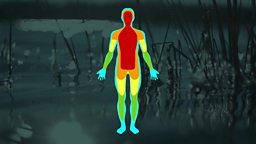How do you recognise if someone has a mental health issue, and what can you do about it?
At any one time, one in six of us in the UK experiences a common mental disorder such as depression or anxiety.
Many more suffer in silence but do not seek help. Suicide is the biggest cause of death for men under fifty, and for women under 34.
Increasingly, ‘Mental Health First Aid’ initiatives are being rolled out in workplaces across the UK. A notable case is Stirling Albion football club, one of the first in Scotland to train their staff to recognise some warning signs of mental health problems.
The aim is to prevent anyone at the club suffering in silence, and to identify and deal with problems before they become overwhelming. The initiative does not intend to train staff or players to become therapists, counsellors or psychiatrists but to provide simple tools so they can recognise the signs and symptoms and give appropriate help - something that anyone can do.
So how do you spot if someone has a mental health problem – and what can you do to support them?
Some signs that someone might be at risk include:
- Being withdrawn or lost in thought
- Losing their sense of humour
- Being erratic, unusually agitated, tearful, or, conversely, emotionless
- Changes in appetite, weight or sleep patterns
- Increased alcohol consumption
So if you think someone you know might be at risk of mental health difficulties, what should you do?
- Start by saying you’ve noticed a change in their mood or behaviour - without being critical.
- Say you’re concerned and ask if they’d like to talk.
- Don’t downplay their problems or say things like “what do you have to be depressed about?”
- Listen and give them space to describe how they’re feeling.
- Encourage them to see their GP or offer to go with them to see a health professional.
- If you think they’re at risk of suicide, you can call the emergency services, or call their GP for an emergency appointment.
If you recognise the early warning signs in someone, or know they are struggling with their mental health, these first steps can make an enormous difference to their health and their lives.
Another important element of mental health first aid is to address the stigma attached to mental health problems. People often feel more embarrassed or ashamed of acknowledging mental health issues than physical ones, and it’s important to help them try to overcome these feelings and feel comfortable talking about their mental health.





























